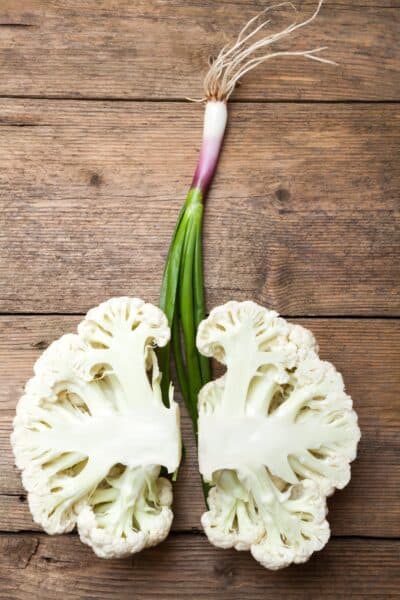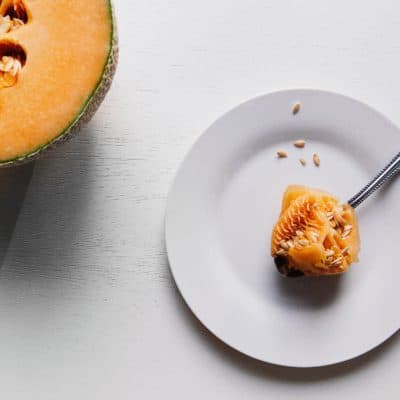Long ago, eggs were an amazing food and are still today touted as the “perfect protein” and a health food. However, more and more research is showing eggs to be detrimental to health, and as a contributor to many different conditions. One of my first recommendations to almost all new clients who still eat eggs is to start minimizing or omitting them from their diet. But why? And how? you ask. Well, let’s dive in.
Top 5 Reasons To Avoid Eggs
EGGS GROW VIRUSES.
Since the early 1900s, eggs have become a perfect feeding ground for viruses. Did you know that each year the flu shot is developed by breeding flu virus strains in eggs? The rapid growth proteins that naturally occur in eggs provide a feeding frenzy for the virus and are carefully incubated until the viral load is high enough to harvest, refine, and make into a vaccine. The same process happens within your body when your egg consumption meets a virus residing in your organs. The virus feeds on the egg and grows rapidly, increasing its ability to damage your health. Does this happen even if the egg is organic/free-range/cage-free etc.? Yes. These rapid growth hormones are part of a chicken’s life cycle. Think of how quickly a baby chick grows to an adult chicken – within the span of 5-7 months. This growth happens regardless of the chicken’s living environment, and thus all eggs can rapidly breed viruses in the body.
EGGS CAUSE INFLAMMATION.
Research shows the enzymes and compounds created in the body as a result of eggs (and meat, oils, and processed foods) are inflammatory to the body. Inflammation plays a key role in autoimmune disease, arthritis, heart disease, and so many other chronic conditions. In fact, eating eggs significantly increases the risk of heart disease and all-cause mortality – that is, dying from any cause. The important piece from this 2019 study is the dose-response pattern, meaning the more eggs consumed, the higher the risk.
But what about studies such as this one that say three eggs daily reduces inflammation? Be careful of biased research – when in doubt, follow the funding; that study was funded by the Egg Nutrition Center. In fact, it is illegal to advertise that eggs are nutritious, as determined by the U.S. Dept. of Agriculture and the U.S. Court of Appeals, which issued a “cease and desist” to the egg industry’s false advertisements of the health benefits of eggs.
EGGS ARE BAD FOR YOUR HEART – AND ANY CHRONIC CONDITION.
Because of their high fat content, eggs make your blood thicker and harder to pump through your heart. But isn’t your liver supposed to filter out fats from your bloodstream? Yes – however, most people have low-functioning, sluggish, overburdened livers due to poor diet, environmental factors, chemical burden, and more; so your liver may not filter out these fats very well before they reach the heart. Blood that is full of fat is difficult to pump and a poor vessel for delivering nutrients all over the body. Studies show even one egg a day can exceed the safe upper limit for daily cholesterol intake, and increase your risk for cardiovascular disease. In fact, those at risk for heart disease are advised not to eat eggs per the National Cholesterol Education Program (NCEP). Not only do eggs increase your risk for Type 2 diabetes, they are almost as bad for your heart as smoking – so do yourself a favor and pass on the omelette.
If you are struggling with any health condition, including fertility issues, I highly recommend removing eggs from your diet completely. Eggs cause inflammation, allergies, feed viruses, bacteria, yeast, mold, candida, fungi, and irritate the lymphatic system. In a weakened digestive system, eggs can increase ammonia which saturates and irritates the central nervous system – contributing to migraines and other nervous system conditions, such as anxiety, epilepsy, Parkinson’s, Alzheimers, etc.
EGGS INCREASE CANCER RISK & FATALITY RATE.
If you are trying to prevent or fight cancer or avoid a relapse, I recommend eggs to be at the top of your list to omit. Eggs have also been linked to increased cancer risk and higher fatality rates for certain cancers. Shown to accelerate cancer via reactions in the gut, eggs are one of the highest dietary risk factors for cancer. Directly associated with numerous cancers, including fatal prostate cancer and breast cancer, eggs can also cause the recurrence of aggressive cancer. Multiple studies are clearly showing that the higher the egg consumption – even half an egg a day – the higher the cancer risk. Not only this, but carcinogenic viruses and carcinogenic chemicals have been found in poultry products (including eggs). If you are already at risk for cancer, want to decrease your risk, or are undergoing cancer treatments, I highly recommend avoiding eggs in your diet. I have also put together an online course devoted to all the things I have seen to be most effective for cancer over the last decade, which can be used for prevention or alongside any conventional or natural cancer treatments – check it out here – The Cancer Warrior: Building Resiliency The Natural Way.
THE EGG INDUSTRY ISN’T WHAT IT SEEMS.
Yes, despite the images of happily clucking chickens and green pastures, even the “free-range, cage-free, organic” eggs you buy have an ugly side to them. Chickens on conventional and organic farms can endure cruel mutilations such as de-beaking, which causes intense and chronic pain. Even “free range” chickens aren’t treated as well as you think and are subject to overcrowding and poor conditions. In the egg industry, all male chickens are put through an industrial blender at 1 day old because they are of no use to production. Although the natural average lifespan of a chicken is 5-10 years, a chicken in the egg industry maxes out after 1-2 years of age, forced to produce 25 times more eggs on a farm than in the wild. And of course, in the end, even free-range, organic, cage-free chickens end up at the slaughterhouse. For more information, check out this video.
Eggs & Women’s Health
In my practice, I see so many women struggling with fertility, cysts, fibroids, PCOS, and more. My first piece of advice? Omit eating eggs! Why? These ailments are triggered and exacerbated by eggs, due to their ability to rapidly grow viruses and bacteria responsible for attacks on the reproductive organs.
How do eggs affect fertility? Among other factors like inflammation levels, the balance of hormones in the body is important for conception and the ability to hold a pregnancy. Eggs contain thousands of hormones that help it become a baby chick. Hormones are information that excite a process in the body. When you eat eggs, you consume all of those hormones – and confuse your body, causing a hiccup in your hormonal processes. These hormones contain information from a completely different living being, and cause confusion in your own beautiful hormone communication system.
Poultry products, as well as other meat and dairy products, have high levels of estrogen, which alter the balance of hormones in your body. In fact, chickens have the highest concentration of the most potent carcinogenic estrogen (17-beta estradiol) in their urine out of all farm animals – regardless of whether or not they were injected with steroid hormones. Naturally occurring hormones are part of the metabolism of animals, and consuming animal products – including eggs – have been shown to be unavoidable when consuming these products. In addition, this study found that the more eggs women consumed before pregnancy and during early pregnancy, the higher their risk of developing gestational diabetes. (Women are 7x more likely to develop Type 2 diabetes after having gestational diabetes.)
The hormone-disrupting effects of poultry products aren’t just reserved for women – girls are also feeling the effects. Every gram of daily animal protein intake has been shown to have a 1.17% increase of earlier puberty in girls. In general, animal protein intake is associated with early onset puberty, whereas plant protein intake is associated with late onset puberty. Why does the age of puberty onset matter? Studies show that the later puberty occurs, the lower the risk for developing certain serious illnesses, such as breast cancer, and is also a predictor of having a longer lifespan.
The uterus of a woman ends up being an excretory organ because it is supposed to have a menses every month and shed the lining of the uterus. The body will shove chemicals, toxins, and pathogens (viruses and bacteria) into the uterus because it assumes these will be exited from the body. However, these toxins are not always released if they are deeply burrowed into the lining of the uterus. Eggs come from the uterus of a chicken, and they end up settling in the uterus and ovaries of a woman. Eggs will feed the pathogens and toxins that are in the uterus of a woman – causing major disruptions in the reproductive system.
If women want to live longer, eggs aren’t part of the plan. The number one cause of death? Heart disease, for which dietary cholesterol is a significant risk factor. Just one egg a day is equivalent to the life-shortening effects of 5 cigarettes a day. In general, conclusions from this comprehensive longevity study found that cholesterol (which is found only in animal foods, especially in eggs) is associated with a shorter lifespan, whereas a diet rich in fiber (which is only richly found in plant foods) is associated with a longer lifespan.
All in all? My advice for women is to pass on eating the results of chicken’s period (eggs).
What about the nutrition in eggs?
It should be noted that eggs result in hormonal disruption for men as well, causing issues in the reproductive organs. Eggs will settle in the prostate, and have been linked to fatal prostate cancer and cardiovascular disease, which is the number one cause of death for men as well.
Eggs have long been heralded as “the perfect protein” – however, the U.S. Court of Appeals has ordered egg producers to halt this false advertising. It is illegal to say that eggs are “packed with protein” – or even to call them “nutritious” – because the U.S. Dept. of Agriculture has determined this to be false and misleading information.
Studies confirm that consuming foods high in animal protein, fat, dairy, and eggs is linked to cancer, inflammation, type 2 diabetes, cognitive decline, early death, and more. When you can get the same or even better quality of protein from plant sources – which are linked to the lowest risk of cancer, reducing inflammation, weight loss, improved cognitive function, greater longevity, and more – why not do it? To see a more comprehensive look into protein, be sure to check out this article.
But what about the other nutrients eggs contain? They also have Vitamin A, D, B-6, as well as minerals including calcium, phosphorus, potassium, iron, and sodium. Shouldn’t you eat eggs to get those nutrients?
The overwhelming evidence from this article and my experience over the last decade-plus working with clients is: you do not need eggs to get these nutrients. When evaluating the risks versus the benefits of eggs, the detriments to your health far outweigh the benefits of any nutrition you may glean from an egg – nutrition that is easily obtainable from plant sources such as cantaloupe, celery, leafy greens, several herbs, sprouts, zucchini, cauliflower, chaga, coconut water, garlic, and many, many other fruits and vegetables. Plus, these plant sources have tons of other added benefits such as a longer life, better skin, better mental clarity, weight loss, and many, many more!
BAKING SUBSTITUTES FOR EGGS
If a baking recipe calls for eggs, have no fear – you can still stay true to the recipe while substituting for eggs! It may take some experimentation to see which one you like the best, but trust me – it’s worth it.
There are many substitutions one can make for eggs in a baking recipe, but here are some healthy ones I use:
1 egg =
- ½ a banana, mashed
- 1 Tbsp chia seeds mixed with 3 Tbsp water, let sit for 5 minutes to thicken
- 1 Tbsp ground flax seeds mixed with 3 tbsp water, let sit for 5 minutes to thicken
- ¼ cup applesauce
Can you spot these substitutes in my recipes such as these muffins, banana bread, or pancakes? Happy baking!
What would happen if you stopped eating eggs?
I hope this article gives you pause to evaluate the role that eggs play in your life. If anything, try an experiment: stop eating eggs for an extended period of time – say, a few months. (Be sure to read ingredients on packaged food, especially baked goods – you would be surprised at the products you’ll find eggs in.) Take note of how you feel. Your health is a priceless part of your life – why not try something new to see if it can improve?
Worried about your protein? Check out this article to learn more. If you need some help on what to eat if you are avoiding eggs, check out the Go Vegan For 30 Days program, which includes meal plans, recipes, tips, motivation, and more information on how to eat and live without animal products.
All my blessings to you!
Amber
To get exclusive recipes, health info, and wellness tips straight to your inbox, subscribe here.
To begin your healing journey today with my starting protocol, register here.









